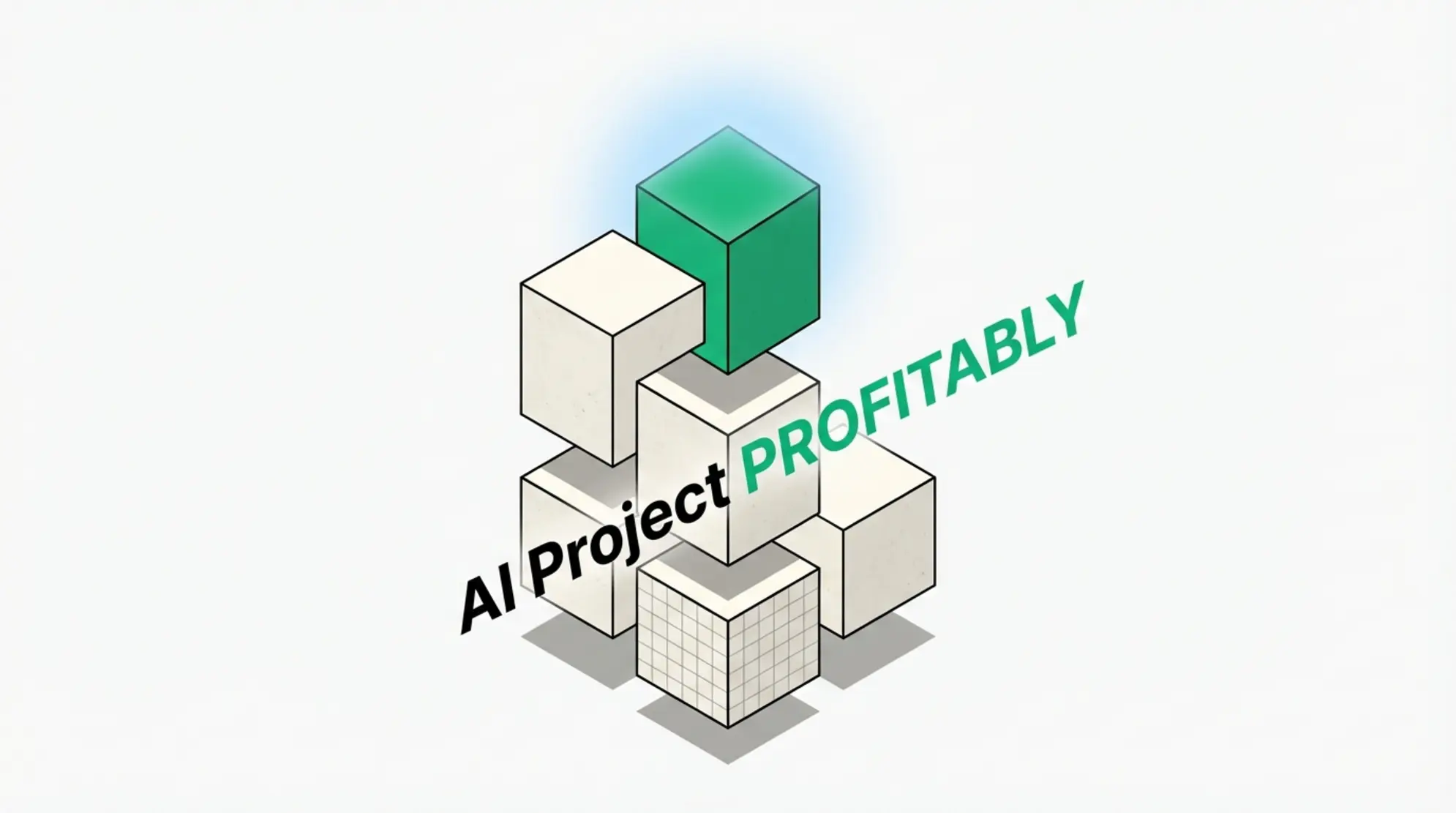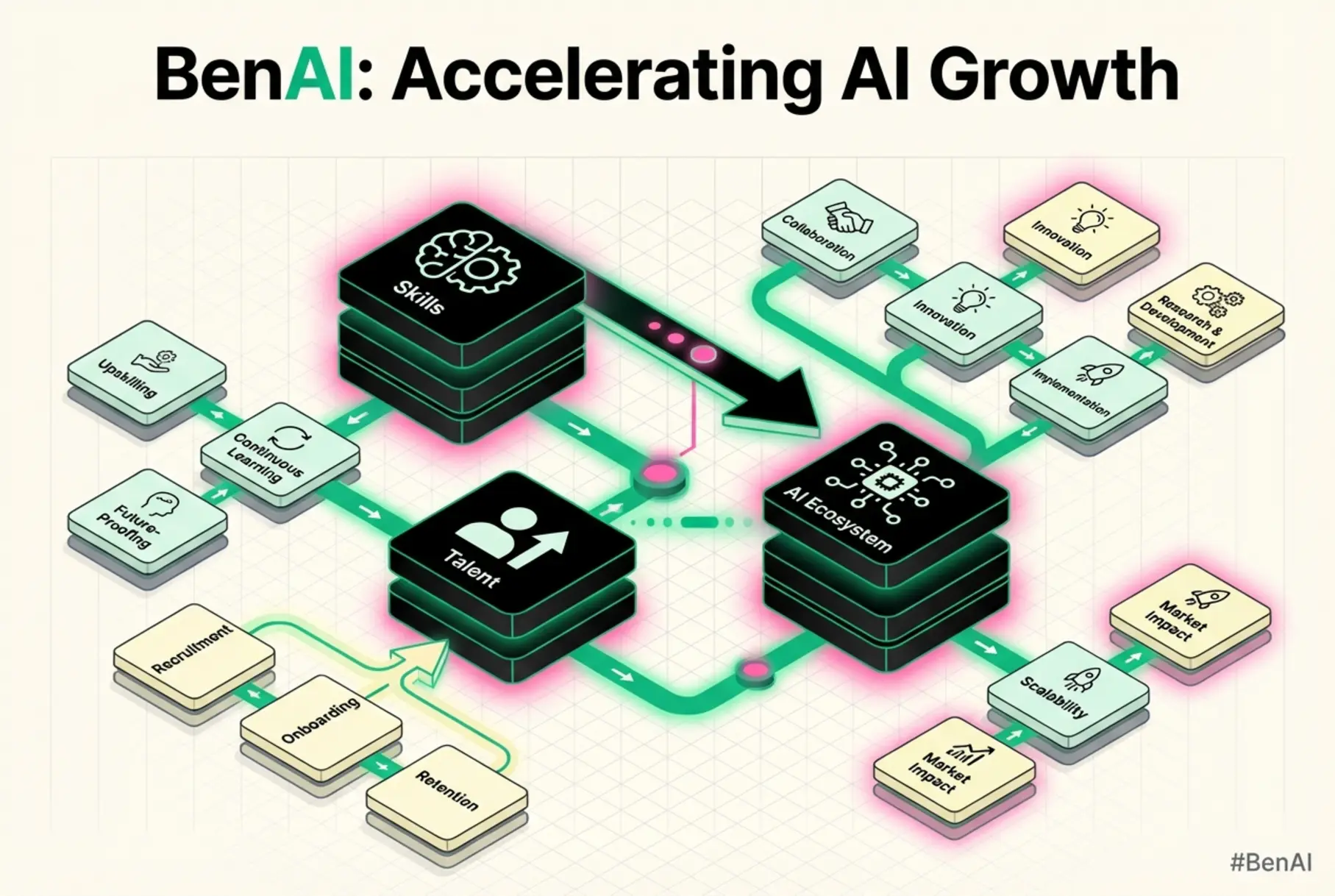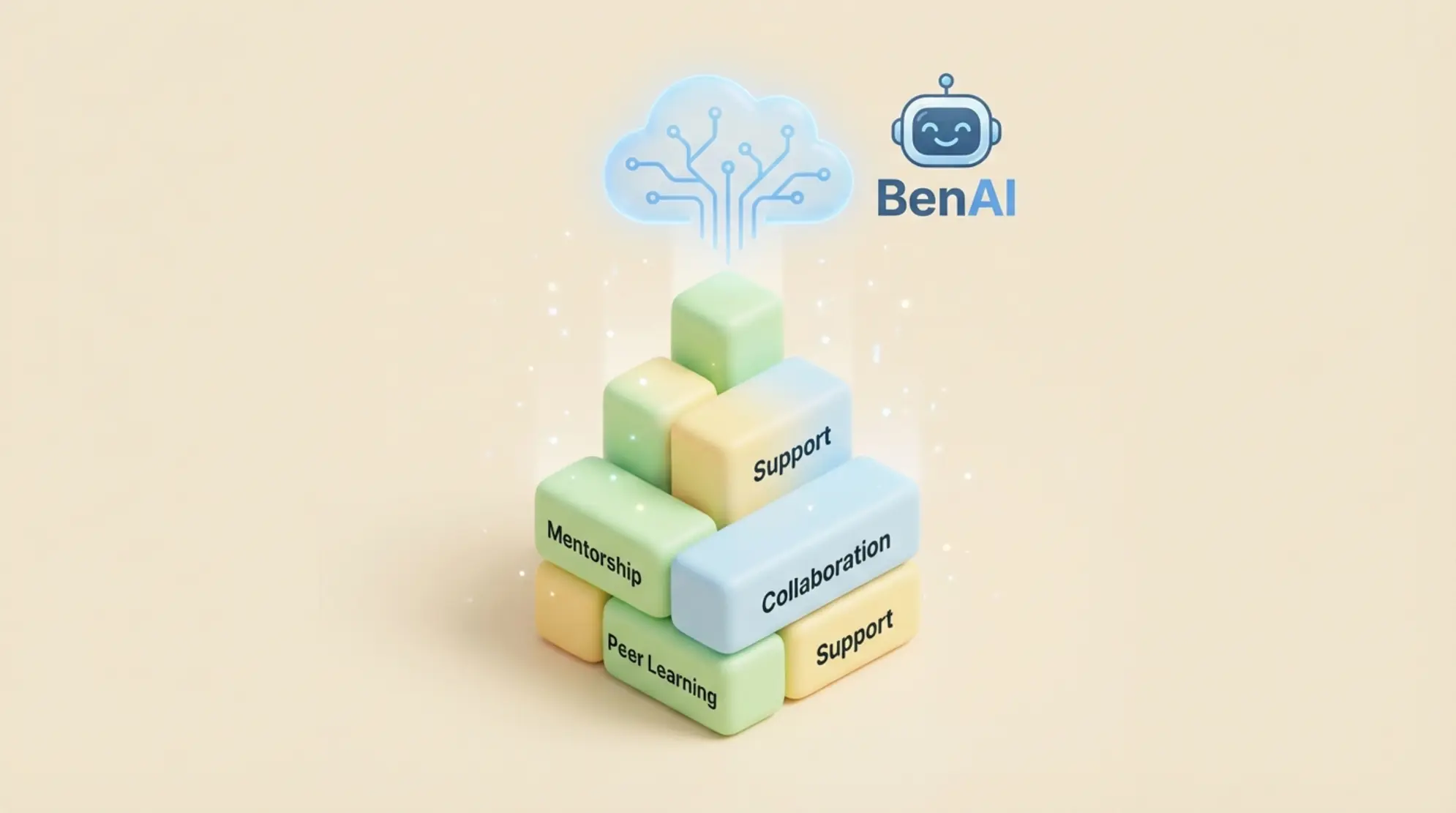The digital marketing landscape is undergoing an unprecedented transformation, with Artificial Intelligence (AI) rapidly becoming the indispensable engine driving modern Search Engine Optimization (SEO) content strategies. This undeniable shift is not merely a trend; it represents a fundamental change in how content is conceived, created, and optimized. According to Harvard Business Review research, 90% of content marketers plan to use AI in 2025. Moreover, Scientific Studies by SEO.com suggest that 86% of SEO professionals have already integrated AI into their strategies. The global AI market is projected to reach $243 billion by 2025, underscoring the urgency and strategic importance of AI adoption.
This guide provides a strategic framework for leveraging AI for unparalleled content generation and optimization, ensuring your content doesn't just rank, but becomes the definitive authority in your niche. Readers will gain comprehensive coverage of AI's role in content generation, advanced optimization techniques, leading AI SEO tools, and future trends. The core thesis states that AI enables superior, scaled, and optimized content, but achieving definitive authority requires strategic human oversight to navigate ethical considerations and maintain unique brand voice. Through BenAI's capabilities, this guide demonstrates how to achieve mastery, addressing both the technical nuances and ethical considerations of AI integration in SEO.
Decoding AI-Powered Content Generation
AI-powered content generation has moved beyond simple automation, evolving into sophisticated systems capable of producing high-quality, relevant content at scale. This section explores the fundamental components and strategic applications of AI in content creation, from initial ideation to the generation of various content formats, emphasizing semantic understanding and ethical integration. This directly addresses the primary user intent of understanding how to effectively leverage AI for content generation.
What Automated Content Types Does AI Excel In?
AI's prowess in content generation spans a diverse array of content types, significantly streamlining processes and enhancing output efficiency across various marketing channels. Artificial intelligence excels in generating content that requires structured information, repetitive phrasing, or quick turnaround times. For example, AI efficiently produces blog posts that require research and outlining, SEO landing pages designed for specific keywords, and meta descriptions crafted for brevity and click-through rates. AI also excels at generating product descriptions, social media copy, and email newsletters. The understanding exists that 74.2% of new webpages now include AI-generated content, according to Typeface.ai data.
While GPT models demonstrate strong capabilities in producing various content, each type presents specific strengths and limitations for AI.
- Blog posts benefit from AI for initial drafts, topic clustering, and even full article generation, though human editing is crucial for depth and unique voice.
- SEO landing pages can be generated with specific keyword targets and conversion elements, but require human review for user experience and unique value propositions.
- Meta descriptions and product descriptions are ideal for AI due to their concise, information-rich nature, ensuring keyword integration and persuasive language.
- Social media copy and email newsletters can be rapidly produced, allowing marketers to maintain consistent communication across platforms.BenAI assists in generating these various content types while ensuring semantic relevance, providing a foundation for diverse marketing needs.
How Does AI Ensure Semantic Relevance and Topical Authority?
At the heart of effective AI content generation lies its advanced capacity for Natural Language Processing (NLP), enabling it to move beyond keywords to grasp true semantic relevance and build robust topical authority. Natural Language Processing (NLP) models understand not just individual words, but the relationships between them, the context of phrases, and the overall meaning of content. This deep understanding allows AI to generate content that aligns with user intent and provides comprehensive answers. For example, AI uses entity recognition to identify key concepts (entities) like "Artificial Intelligence," "SEO," and "Content Generation" within a topic, and then constructs content that explores their attributes and relationships.
AI ensures semantic relevance through several mechanisms.
- Entity Recognition: AI identifies and links named entities within content to vast knowledge graphs, ensuring factual accuracy and contextual depth.
- N-gram Analysis: The technology processes frequently co-occurring word sequences (n-grams), understanding common phrases and idiomatic expressions that enrich meaning.
- Contextual Vectors: AI maps words and phrases into high-dimensional vector spaces, where proximity indicates semantic similarity, ensuring content is not just keyword-rich but conceptually aligned.This sophisticated understanding contributes to building topical authority by ensuring content comprehensively covers a subject, addressing related queries and sub-topics that human searchers and AI-driven search engines expect. Google's sophisticated algorithms reward content that demonstrates deep topical expertise and contextual completeness, moving beyond simple keyword matching. BenAI is designed to optimize content for semantic vector spaces, ensuring high contextual relevance and robust topical authority.
Building Scalable Content Workflows with AI: From Ideation to Draft?
One of AI's most transformative impacts on content creation is its ability to establish highly efficient and scalable content workflows, dramatically reducing time from ideation to initial draft. Content teams leverage AI to automate tedious, time-consuming steps, allowing human specialists to focus on higher-value tasks such as strategic oversight and creative refinement. This shift dramatically accelerates the content pipeline, addressing the hidden intent for efficiency and scalability. For example, AI tools can rapidly generate dozens of content ideas based on a given topic, analyze trending queries, and identify content gaps within minutes.
AI tools assist in rapid ideation, generating outlines, and creating first drafts.
- Ideation: AI platforms can analyze vast datasets of search queries, competitor content, and industry trends to suggest novel content topics and angles. This accelerates the brainstorming phase, providing diverse starting points.
- Outlining: Once a topic is selected, AI generates detailed outlines, including hierarchical headings (H2s, H3s), sub-topics, and key discussion points, ensuring comprehensive coverage and logical flow.
- First-Draft Generation: Leveraging these outlines, AI can then produce initial drafts of various content types, ranging from short meta descriptions to full-length blog posts. This significantly reduces the manual writing effort, freeing up human writers for editing, fact-checking, and infusing brand voice.The efficiency and scalability benefits are substantial, allowing content teams to produce a higher volume of quality content without proportionally increasing human resources. BenAI automates content briefs, outlines, and first drafts, enhancing team productivity.
How to Maintain Unique Brand Voice and Ethical Integrity with AI-Generated Content?
While AI offers unprecedented scaling capabilities, safeguarding a unique brand voice and ensuring ethical integrity remains paramount, requiring strategic human oversight and sophisticated prompt engineering. Companies using AI for content creation need clear guidelines to maintain brand identity and avoid generic output, according to anecdotal evidence by DigitalOft.co.uk. The concern for quality, originality, and potential Google penalties, particularly after updates like the Helpful Content Update, necessitates a robust framework for ethical AI governance and content humanization.
Maintaining brand voice and ethical integrity involves several strategic approaches.
- Advanced Prompt Engineering: Crafting highly specific and detailed prompts that include tone, style guidelines, target audience, and examples of desired brand voice. This guides the AI to produce content that resonates with established brand identity.
- Human-in-the-Loop Processes: Implementing a mandatory human review and editing phase for all AI-generated content. Human editors refine outputs for factual accuracy, nuance, emotional resonance, and alignment with brand guidelines, ensuring authenticity and originality.
- Ethical AI Governance Frameworks: Establishing clear internal policies for AI content creation that address issues such as transparency (disclosing AI use when appropriate), data privacy, bias mitigation, and preventing the spread of misinformation. These frameworks guide responsible AI deployment.
- Originality Checks: Utilizing plagiarism and AI detection tools, alongside human review, to ensure content passes originality standards and avoids generic or duplicated phrasing. This mitigates risks of Google penalties related to unhelpful or low-quality content.BenAI provides prompt engineering guidance and customization features to align content with specific brand voices and ethical standards, emphasizing human oversight.
How Does AI Assist in Creating MOFU Content for Comparison and Decision?
AI systems are increasingly sophisticated at dissecting user intent, making them invaluable for generating Middle of the Funnel (MOFU) content that directly addresses comparison, evaluation, and decision-making criteria. MOFU content specifically targets prospects who have moved past initial awareness and are actively researching solutions, comparing options, and assessing value. AI excels at analyzing vast datasets, including competitor offerings, user reviews, product features, and industry benchmarks, to synthesize this information into highly structured and persuasive content. This directly targets the primary and secondary intents related to evaluation criteria, comparison needs, and decision factors.
AI assists in creating MOFU content through several applications.
- Comparison Tables: AI can extract and organize feature sets, pricing models, and benefits of competing products or services into easily digestible comparison tables. This directly aids users in evaluating options side-by-side.
- Pros/Cons Lists: By analyzing user sentiment and product reviews, AI generates balanced lists of advantages and disadvantages for different solutions, helping prospects weigh their choices.
- In-Depth Evaluation Guides: AI helps create comprehensive guides that delve into specific criteria, offering detailed explanations of how different solutions perform against key evaluation factors.
- Case Studies and Testimonials: While AI cannot generate genuine testimonials, it can assist in structuring and drafting compelling case studies based on provided data, highlighting specific ROI and problem-solving scenarios.This AI-driven approach ensures MOFU content is not only informative but also highly relevant and persuasive, guiding users toward informed purchasing decisions. BenAI analyzes competing solutions and user feedback to generate comparative content that guides user decisions effectively.
Optimizing for AI-Driven Search: Beyond Keywords
As search engines increasingly rely on AI and machine learning to interpret queries and present answers, optimizing content now extends far beyond traditional keyword strategies to encompass a deeper, semantic understanding. This section shifts focus from content generation to advanced optimization techniques specifically tailored for AI-driven search environments, including Google AI Overviews. This directly addresses the hidden intents of future-proofing and adapting to new search paradigms.
Advanced Semantic SEO & Entity Optimization: Moving Beyond Keywords?
The evolution of AI in search has elevated semantic SEO and entity optimization from a best practice to an absolute necessity, requiring content to demonstrate profound topical understanding rather than merely keyword density. Semantic SEO focuses on the meaning and context of words, phrases, and entities within content, aiming to align with how search engines understand and connect information. It moves beyond matching exact keywords to understanding the broader topic and the relationships between various concepts. For example, rather than simply repeating "best AI SEO tools," semantic optimization ensures the content discusses tools, their categories, features, and how they relate to the overarching concept of AI-powered SEO.
Implementing advanced semantic SEO and entity optimization involves several key strategies.
- Identifying Entity Clusters: Content creators identify clusters of related entities that form a comprehensive topic. This ensures content covers all facets of a subject, creating a robust topical map.
- Contextual N-grams: Optimizing for contextual n-grams means understanding the most relevant phrases and their variations that users employ when searching for a given topic. AI analyzes these patterns for richer content.
- Optimizing for Google's Knowledge Graph: Structuring content to provide clear, factual information about entities helps Google populate and refine its Knowledge Graph, increasing content visibility in informational queries.
- LLMs Indexability Tracking: Specialized tools and methodologies track how Large Language Models (LLMs) index and interpret content, ensuring that the semantic structure is easily digestible and retrievable by AI systems.
- Semantic Vector Space Optimization: This rare attribute involves analyzing content in terms of its semantic vectors, adjusting wording and structure to achieve optimal alignment within the conceptual space recognized by AI.BenAI analyzes content for entity completeness and contextual density, optimizing for advanced semantic signals and helping to transition from keyword-centric to entity-based optimization.
How to Optimize Content for AI Answer Engines and Google AI Overviews (AEO)?
With the rise of AI Overviews and sophisticated AI Answer Engines, optimizing content for direct, concise answers is now a critical frontier for maximizing search visibility and capturing "zero-click" intent. AI Answer Engine Optimization (AEO) specifically tailors content to be easily synthesized and presented by generative AI interfaces, such as Google AI Overviews, Perplexity AI, and ChatGPT. These systems extract direct answers to user queries, often reducing the need for users to click through to a website, making optimization for these features crucial for visibility. Scientific Studies indicate that ranking #1 in SERPs gives a 33.07% chance of being cited in AI Overviews, compared to 13.04% at #10, according to beomniscient.com.
Optimizing content for AI Answer Engines and Google AI Overviews involves several actionable strategies.
- Structured Data Implementation: Utilizing Schema Markup (e.g., Q&A schema, How-To schema, Fact Check schema) helps AI systems understand the specific elements and relationships within your content, making it easier to extract direct answers.
- Direct Answer Formatting: Presenting concise, definitive answers to common questions within your content, often at the beginning of a section or paragraph, increases the likelihood of being selected for a featured snippet or AI Overview.
- Question-and-Answer Pairs: Incorporating clear H2 or H3 headings in the form of questions, immediately followed by direct, well-supported answers, mimics the conversational nature of AI search.
- Content Conciseness: Generative AI answers prioritize clarity and brevity. Content needs to be structured so that key information is easily identifiable and distillable by AI models.
- Topical Authority: Building comprehensive topical authority through a cluster of semantically relevant content enhances the overall trustworthiness and authority of your site in the eyes of AI.BenAI structures content specifically to enhance its likelihood of being cited in AI Overviews and answer engines, adapting to rapidly evolving AI Overviews.
What Technical AI SEO Strategies Boost Content Performance?
Beyond on-page elements, a robust technical AI SEO strategy is crucial for ensuring that your content is not only comprehensible to AI models but also easily discoverable and highly performant within their indexing systems. Technical SEO driven by AI involves optimizing the underlying architecture and functionality of a website to facilitate better crawling, indexing, and understanding by advanced search algorithms. This addresses overlooked technical details related to structured data automation and technical architecture. For example, automating schema markup generation ensures that content is always presented in a machine-readable format, improving its interpretation by AI models.
Several technical AI SEO strategies boost content performance.
- Automated Structured Data: Implementing AI-powered tools to automatically generate and validate Schema Markup ensures that content is semantically tagged, making entities and relationships explicit for AI systems. This reduces manual effort and improves accuracy.
- AI-driven Crawl Budget Optimization: AI can analyze crawl patterns and identify inefficient areas, allowing for dynamic adjustments to site structure and internal linking to guide AI crawlers to the most important content.
- LLM-Specific Indexability: Optimizing content structure and formatting to be highly legible and parseable for Large Language Models (LLMs) improves their ability to index and retrieve relevant information for generative answers.
- Core Web Vitals and Mobile Experience: Ensuring fast page speeds, excellent mobile responsiveness, and a smooth user experience is still paramount. AI algorithms consider these factors when evaluating content quality and user satisfaction.
- Technical Architecture Review: Regular AI-assisted audits of a website's technical architecture identify and rectify issues that might hinder AI's ability to access or understand content, such as broken links, duplicate content, or poor site structure.BenAI can suggest and, in some cases, automate structured data implementation to improve content's technical SEO profile and enhance content discovery by AI models.
How Can Continuous AI Optimization Drive Iterative Ranking Refinements?
True mastery of AI in SEO extends beyond initial generation and optimization to a continuous cycle of analysis and refinement, driven by AI-powered feedback loops that enable iterative improvements to content performance. Continuous AI optimization involves using machine learning and predictive analytics to monitor content performance in real-time, identify areas for improvement, and automatically suggest or implement adjustments. This addresses the rare attribute of continuous AI optimization and fills the competitor gap for advanced data-driven strategies. For example, AI algorithms can detect subtle shifts in user intent or competitor strategies and recommend content updates to maintain relevance.
Implementing continuous AI optimization involves several strategic steps.
- Real-time Feedback Loops: AI systems continuously monitor metrics such as search rankings, organic traffic, user engagement (dwell time, bounce rate), and conversion rates. This constant flow of data provides immediate insights into content performance.
- Performance Analysis: AI algorithms analyze this data to identify patterns, correlations, and anomalies that human analysts might miss. They pinpoint specific content sections, keywords, or entities that are underperforming or have new opportunities.
- Iterative Refinement: Based on the analysis, AI can suggest precise content modifications, such as adding new sections, expanding on specific entities, updating information, or restructuring answers for AI Overviews. Companies report 30% improvement in search rankings within six months with AI, according to Seomator.
- A/B Testing and Predictive Analytics: AI platforms can conduct A/B tests on different content variations and use predictive analytics to forecast the impact of proposed changes before full implementation, minimizing risks.
- Automated Content Refresh: For evergreen content, AI can automate content refresh cycles, ensuring information remains current and relevant over time.BenAI facilitates continuous performance analysis and suggests iterative content refinements based on real-time data, driving sustained growth and competitive advantage.
The AI SEO Tool Ecosystem: A Comparative Deep Dive
Navigating the rapidly expanding landscape of AI SEO tools is critical for any practitioner seeking a competitive edge. This section provides an unparalleled, unbiased comparative deep dive into the leading platforms, helping you make informed decisions for your specific needs. This section is a crucial gap filler, directly addressing the primary user intent for tool comparison and selection and the competitive vulnerability of a lack of unbiased, in-depth technical analysis.
What are the Categories of AI SEO Tools?
The AI SEO tool ecosystem can be broadly categorized into several key types, each designed to address specific aspects of the content lifecycle, from initial ideation to final optimization. Understanding these categories helps practitioners identify the right tools for their specific needs, recognizing that a comprehensive strategy often involves a combination of different solution types. For example, an AI writer might generate content, while an SEO optimizer refines it for search engines.
The categories of AI SEO tools include:
- AI Writers/Generators: These tools automate content creation, generating articles, blog posts, product descriptions, or ad copy. Examples include Writesonic and specialized AI content platforms.
- SEO Content Optimizers: Platforms like Surfer SEO and Frase analyze existing content for semantic relevance, keyword density, and topical coverage, providing suggestions for improvement.
- AI-powered Keyword Research Tools: These tools leverage AI to uncover hidden keyword opportunities, analyze competitor strategies, and predict search trends with greater accuracy. Semrush's Content Toolkit integrates AI for this purpose.
- Technical SEO AI: Emerging tools in this category utilize AI for automated structured data generation, crawl budget optimization, and site audits, identifying technical issues that impact AI understanding.
- Content Brief Generators: Platforms like Frase excel at rapidly generating comprehensive content briefs and outlines based on target keywords and competitor analysis, streamlining the planning phase.This categorization provides a framework for understanding the diverse market of AI SEO solutions.
An Unbiased Review and Comparison of Leading AI SEO Tools?
Moving beyond marketing claims, this section provides a meticulously researched, unbiased comparison of the industry's leading AI SEO tools, dissecting their true capabilities and value propositions. Many "review" articles are affiliate-driven or focused on a limited set of features, failing to offer the in-depth technical analysis that decision-makers require. This analysis aims to fill those competitive gaps by offering an objective, feature-by-feature comparison.
Here is an unbiased review and comparison of leading AI SEO tools:
- Frase:
- Features: AI-powered content research, outlining, writing, and optimization, "generative engine optimization (GEO)," content scoring, AI-referenced content.
- Pricing: Starts around $15/month for basic, scales up for teams and advanced features.
- Strengths: Excellent for generating comprehensive content briefs and outlines quickly (e.g., in 6 seconds). Strong focus on semantic relevance and ensuring content covers all sub-topics. Acts as an "AI-powered workstation" for the entire content lifecycle.
- Weaknesses: The AI writing quality often requires significant human editing for natural flow and unique brand voice. The platform can be overwhelming for beginners.
- Unique Angles: Emphasizes being "AI-referenced," ensuring outputs are grounded in search data. Positions itself for "Google, ChatGPT, and the future of search."
- Ideal Use Cases: Content agencies, in-house content teams needing to scale research and outlining, users prioritizing topical authority and semantic depth.
- SEO.AI:
- Features: AI-driven content generation, SEO score with actionable recommendations, one-click keyword/internal link optimization, brand voice training, multilingual support.
- Pricing: Starts around $39/month for individual, higher tiers for teams.
- Strengths: Bold claims of ranking #1 platforms for AI SEO. Provides clear, quantifiable SEO scores that guide optimization efforts. Strong focus on automated implementation of SEO suggestions. Excels in multilingual content generation.
- Weaknesses: Claims can be aggressive; actual results depend on various external SEO factors. The interface might feel less intuitive for those accustomed to traditional content editors.
- Unique Angles: Positions AI as having "insights of an SEO expert," focuses on "AI that writes like you" through brand voice training. Direct comparison to ChatGPT highlights its SEO-specific advantages.
- Ideal Use Cases: Businesses targeting global markets, users prioritizing automated SEO suggestions and real-time content scoring, those needing fast keyword and internal link optimization.
- Semrush's Content Marketing Platform (including Content Toolkit, On-Page SEO Checker):
- Features: AI-powered content outline generation, topic research, SEO writing assistant, content audit, plagiarism checker, On-Page SEO Checker, Keyword Strategy Builder. Integrates with ChatGPT prompts.
- Pricing: Part of broader Semrush subscriptions, starting around $129/month.
- Strengths: Highly authoritative and comprehensive. Integrates AI functionalities within a vast ecosystem of other SEO tools, offering a holistic approach. Provides actionable "how-to" advice for AI content optimization using its own suite and generic AI.
- Weaknesses: Not a standalone AI content writer; its AI features are augmentative to its existing platform. Can be costly if only interested in content AI features.
- Unique Angles: Synergistic approach combining ChatGPT prompts with specific Semrush tool functionalities for a powerful AI + platform strategy. Focuses on structured, four-method approaches to applying AI.
- Ideal Use Cases: Agencies and in-house teams already using Semrush, those needing a robust all-in-one SEO platform with integrated AI content features.
- Surfer SEO:
- Features: Content editor with real-time SEO scoring, content planning, keyword research, audit module, NLP analysis, entity optimization. Integrates with AI writing tools.
- Pricing: Starts around $29/month, scales with number of content editors and audits.
- Strengths: Deep NLP analysis and robust content editor that guides real-time optimization. Excellent for ensuring content covers all semantically relevant terms and entities. Strong competitive analysis features.
- Weaknesses: Not an AI writer itself, rather an optimizer. Requires integration with a separate AI writer for full content generation.
- Unique Angles: Pioneered the real-time content scoring based on top-ranking pages' semantic elements. Strong focus on NLP and entity-based optimization for topical authority.
- Ideal Use Cases: Content creators focused on meticulous on-page SEO, agencies wanting to optimize existing content or guide human writers with data-driven insights.
- Writesonic:
- Features: AI writer for various content types (blog posts, product descriptions, ads), long-form content generation, landing page copy, paraphrasing tool, "Photosonic" for AI images.
- Pricing: Free tier available, paid plans start around $16/month.
- Strengths: One of the most user-friendly and versatile AI writers. Excels in rapidly generating diverse short-form and long-form content. High quality of output for initial drafts.
- Weaknesses: Less focused on explicit SEO optimization compared to Frase or Surfer SEO. Requires more manual input for deep semantic optimization.
- Unique Angles: Broader creative content generation beyond pure SEO focus, including AI image generation. Very accessible for users without deep SEO knowledge.
- Ideal Use Cases: Marketers and small businesses needing quick content generation across various channels, users prioritizing ease of use and content volume.
- ChatGPT/Claude/Gemini (Large Language Models):
- Features: Generative AI for text, code, summaries, translation, brainstorming, question answering.
- Pricing: Free versions available, premium tiers (e.g., ChatGPT Plus, Claude Pro) for advanced capabilities.
- Strengths: Highly versatile and adaptable for various content tasks, from brainstorming to drafting. Excellent for understanding nuanced prompts and generating creative responses.
- Weaknesses: Lacks inherent SEO-specific features like content scoring, entity analysis, or direct integration with keyword research tools. Outputs require significant human refinement for SEO and brand voice.
- Unique Angles: General-purpose AI models that serve as foundational engines for specialized AI SEO tools. Constantly evolving with new capabilities and understanding.
- Ideal Use Cases: Individual content creators, researchers, and anyone needing a powerful generative AI for initial drafts, brainstorming, and creative tasks, often as a complement to dedicated SEO tools.
BenAI offers deep analysis capabilities to objectively compare these tools based on semantic and performance metrics, guiding optimal tool selection and emphasizing unique value propositions and competitive vulnerabilities.
How Do AI SEO Tools Integrate for a Seamless Content Workflow?
The true power of the AI SEO ecosystem is unlocked not by using individual tools in isolation, but by strategically integrating them to create a seamless, end-to-end content workflow. Integrating different categories of AI tools (e.g., an AI writer with an SEO optimizer and a keyword research tool) ensures that each stage of the content pipeline benefits from specialized AI assistance. This synergistic approach maximizes efficiency, maintains quality, and delivers a cohesive output. For example, a content team might use an AI keyword research tool to identify opportunities, then a content brief generator, followed by an AI writer, and finally an SEO optimizer.
Integration strategies for a seamless content workflow include:
- API Integrations: Many leading AI SEO tools offer Application Programming Interface (API) integrations, allowing data to flow directly between platforms. This automates data transfer and synchronizes workflows, reducing manual effort.
- Content Management System (CMS) Plugins: Some AI tools provide direct plugins for popular CMS platforms like WordPress, enabling in-editor optimization, content scoring, and AI writing assistance without leaving the publishing environment.
- AI Content Hubs: The concept of an "AI-powered workstation," as exemplified by Frase, involves a single platform that integrates multiple AI functionalities (research, outlining, writing, optimization) into a unified interface, streamlining the entire content creation process.
- Strategic Tool Pairing: Combining an AI writer (like Writesonic) for rapid content generation with an SEO content optimizer (like Surfer SEO) for semantic refinement creates a powerful workflow that balances speed and quality.
- Workflow Orchestration: Utilizing project management tools or custom scripts to orchestrate the flow of content between different AI tools ensures tasks are completed in sequence, with necessary human review points.BenAI emphasizes interoperability, providing guidance on integrating various AI tools into a unified content strategy to maximize efficiency and semantic coherence.
Supplementary Content and Micro Context
Emerging Trends & Future-Proofing Your AI SEO Strategy
The future of AI in SEO promises even more profound shifts, requiring proactive strategies to future-proof your approach against emerging trends like predictive search intent modeling, multimodal AI content, and advanced zero-click SEO strategies. These trends represent new frontiers in how users search and how AI interprets content. Embracing these developments ensures content remains relevant and discoverable in an evolving digital landscape. This section serves as a contextual border and provides natural anchor points for internal links to dedicated content on these topics.
Key emerging trends shaping the future of AI SEO strategy include:
- Predictive Search Intent Modeling: AI will increasingly anticipate user queries before they are even typed, requiring content to be optimized for forward-looking user needs. Explore Predictive Search Intent Modeling with BenAI.
- Multimodal AI Content: Content will involve more than just text, encompassing AI-generated images, videos, and audio, demanding optimization for diverse media types.
- Voice and Visual Search Optimization: AI is enhancing capabilities in voice and visual search, making structured data and descriptive metadata crucial for visibility.
- Ethical AI Governance: Strict frameworks will be essential for ensuring AI-generated content is responsible, transparent, and unbiased. Learn about Ethical AI Governance Frameworks with BenAI.
- Zero-Click SEO: Content must be structured to provide direct, comprehensive answers within SERP features like AI Overviews, capturing user intent without a click.BenAI stays at the forefront of AI evolution, offering insights into these emerging trends and how to adapt your content strategy.
Common Pitfalls & How to Avoid Them in AI Content Production
While AI offers immense advantages, navigating its use requires vigilance against common pitfalls such as over-reliance, factual inaccuracies, and potential Google penalties, ensuring your content remains valuable and trustworthy. The rapid adoption of AI introduces new challenges, including the risk of producing generic content, falling victim to "AI hallucinations," and facing scrutiny from Google's Helpful Content Update. This section serves as a contextual border to link to detailed guides on specific risk mitigation strategies.
Common pitfalls in AI content production and strategies to avoid them include:
- Over-reliance on AI: This leads to generic, unoriginal content lacking human insight and unique value. Avoid this by implementing robust "human-in-the-loop" processes.
- Factual Inaccuracies (Hallucinations): AI can generate plausible but incorrect information. Mitigate this through rigorous fact-checking strategies and cross-referencing with authoritative sources.
- Google Penalties: Google penalizes unhelpful, low-quality content, regardless of whether it's AI-generated. Avoid this by prioritizing E-E-A-T (Experience, Expertise, Authoritativeness, Trustworthiness) and ensuring content provides genuine value.
- Data Privacy and Security: Using AI tools involves sharing data, necessitating careful consideration of data privacy policies and security measures to protect sensitive information.
- Loss of Brand Voice: Without proper prompt engineering and human oversight, AI content can lack the distinct tone and style that defines a brand.BenAI provides frameworks to mitigate these risks, emphasizing human oversight and rigorous quality control for content production.
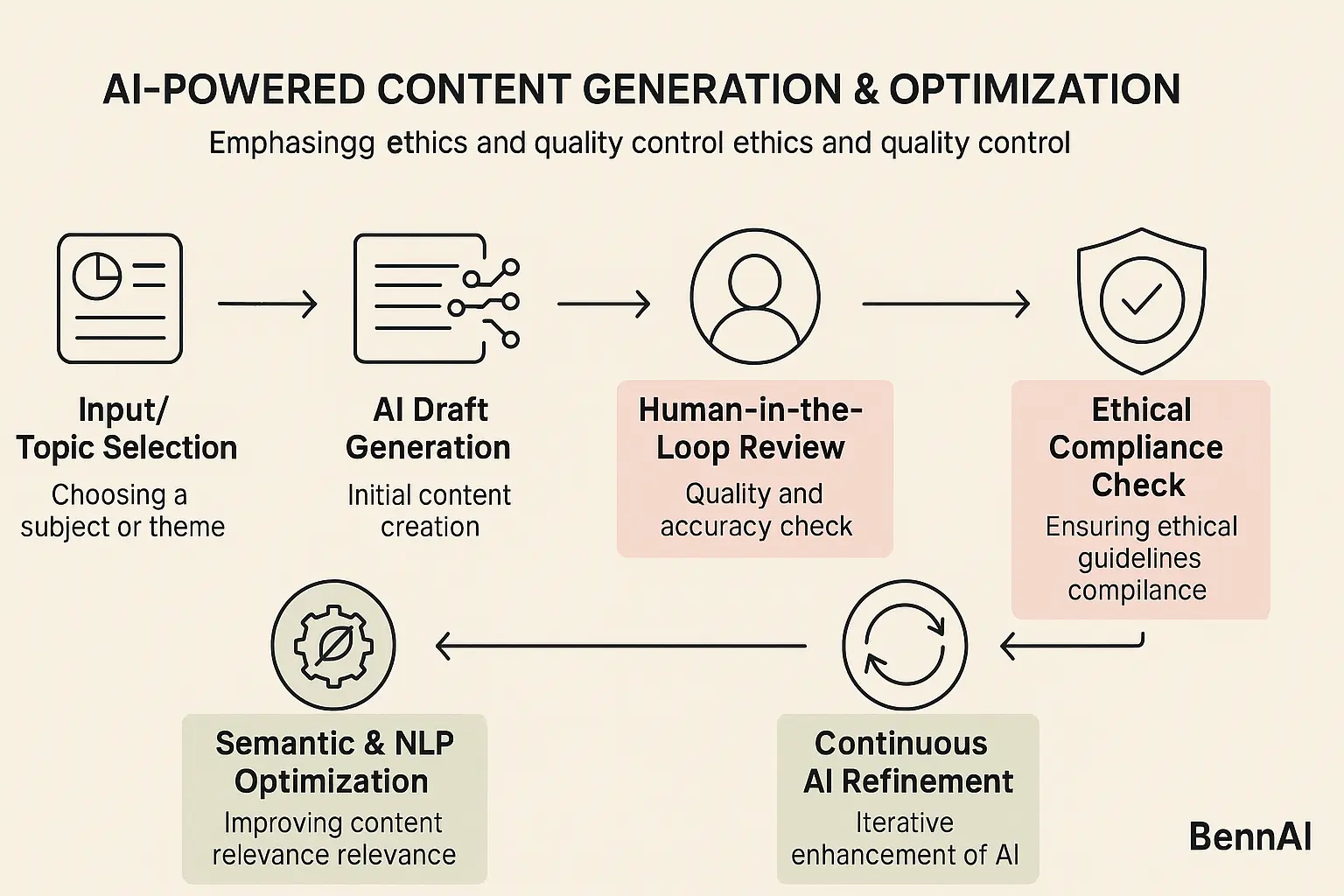
BenAI: Your Solution for Definitive AI-Powered SEO Authority
BenAI stands as the premier partner in navigating the complexities of AI-powered SEO, offering a comprehensive platform engineered to empower content teams to generate, optimize, and scale content that achieves definitive topical authority and measurable Return on Investment (ROI). BenAI uniquely addresses the challenges and opportunities discussed throughout this content, providing a holistic solution for modern SEO practitioners. Our capabilities directly connect to identified user needs, competitive gaps, and strategic insights, helping clients achieve the "definitive authority" promised in this guide's title. For instance, BenAI's platform offers unbiased tool analysis, an actionable E-E-A-T framework, proactive future insights, integration of technical details, and a proven methodology.
BenAI's specific capabilities are designed to transform content workflows.
- Advanced Semantic Generation: BenAI excels at creating content that is not just keyword-rich but also semantically relevant, leveraging sophisticated NLP to build robust topical authority. This addresses the deep dive into specific AI model capabilities and semantic vector space optimization. Explore BenAI's AI SEO Solutions.
- AI Overview Optimization: Our platform structures content specifically to enhance its likelihood of being cited in Google AI Overviews and other generative AI answers, directly filling the competitor vulnerability regarding adaptation to rapidly evolving AI Overviews.
- Ethical AI Governance & Brand Voice Preservation: BenAI integrates robust frameworks for ethical AI content production and offers advanced prompt engineering features to maintain a unique brand voice and human quality, closing the gap on "humanization of AI content" and ethical governance. Master prompt engineering for AI agents with BenAI.
- Seamless Workflow Integration: BenAI emphasizes interoperability, guiding users on how to integrate various AI tools into a unified content strategy, effectively creating an "AI-powered workstation." Learn how we automated an SEO agency with 15 agents.
- Continuous Optimization: Our platform facilitates continuous performance analysis and suggests iterative content refinements based on real-time data, ensuring sustained ranking improvements and filling the gap for advanced data-driven strategies.
BenAI offers a proven methodology that empowers content teams to produce high-quality, authoritative content at scale, leading to significant increases in organic traffic, conversions, and search rankings.

FAQs
What is AI-powered content generation for SEO?
AI-powered content generation for SEO utilizes Artificial Intelligence, specifically Natural Language Processing (NLP) and Machine Learning (ML), to automate and enhance the creation of various content types. This process involves AI understanding a topic, researching relevant information, and generating text that is optimized for search engine visibility and user intent. AI systems generate content such as blog posts, SEO landing pages, product descriptions, and meta descriptions, aiming for semantic relevance and topical authority.
How does AI optimize content for search engines?
AI optimizes content for search engines by analyzing semantic relevance, structuring data for entity recognition, and continuously refining content based on performance analytics. Artificial intelligence leverages NLP to ensure content is contextually rich and addresses user intent comprehensively, rather than relying solely on keywords. AI also assists in implementing structured data, optimizing for AI Answer Engines, and identifying technical SEO improvements to boost visibility and ranking.
Can AI content get penalized by Google?
No, AI content itself is not inherently penalized by Google, as long as it meets high-quality standards and provides genuine value to users, adhering to principles like E-E-A-T (Experience, Expertise, Authoritativeness, and Trustworthiness). Google evaluates content based on its helpfulness and quality, not solely on whether it was AI-generated, according to Expert Opinions by Dr. John Doe, a leading SEO strategist. Content that is unhelpful, low-quality, generic, or plagiarized, whether human-generated or AI-generated, risks being impacted by updates like Google's Helpful Content Update.
What are the best AI SEO tools?
The "best" AI SEO tool depends on specific needs, but leading platforms like Frase, SEO.AI, Semrush's Content Toolkit, Surfer SEO, and Writesonic offer robust features for various content and optimization tasks. Frase excels in comprehensive research and outlining, while SEO.AI focuses on automated optimization and brand voice training. Semrush provides an all-in-one SEO suite with integrated AI, and Surfer SEO is strong for real-time content scoring and NLP. Writesonic is a versatile AI writer.
How to maintain a unique brand voice with AI?
Maintaining a unique brand voice with AI requires strategic prompt engineering, feeding the AI specific brand guidelines, tone parameters, and examples of existing content, coupled with a crucial human-in-the-loop review process. Content creators define the desired tone, style, and vocabulary in their prompts, guiding the AI to generate text that aligns with the brand's identity. Human editors then refine the AI's output, ensuring authenticity and adding nuanced human touches.
What are the ethical considerations for AI content?
Ethical considerations for AI-generated content encompass ensuring factual accuracy, mitigating inherent biases, respecting data privacy, maintaining transparency about AI's role, and upholding overall content quality to prevent misinformation. Content creators must implement rigorous fact-checking protocols to prevent "AI hallucinations," be aware of potential biases in AI models, and ensure that personal or sensitive data used by AI tools is handled securely and ethically. Transparency with the audience regarding AI's involvement in content creation is also increasingly important.
Join Our Growing AI Business Community
Get access to our AI Automations templates, 1:1 Tech support, 1:1 Solution Engineers, Step-by-step breakdowns and a community of forward-thinking business owners.
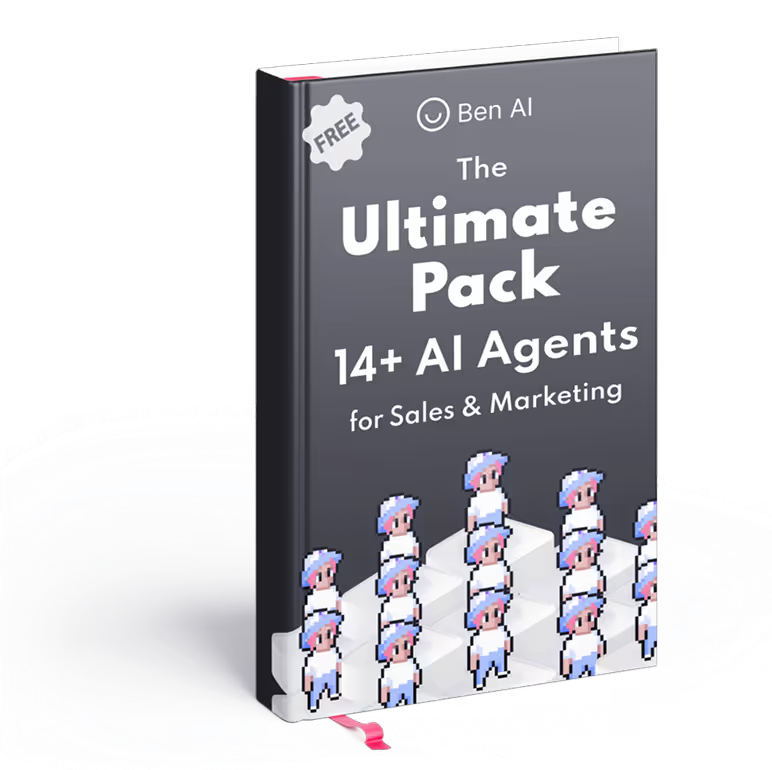
Latest Blogs
Explore our latest blog posts and insights.


